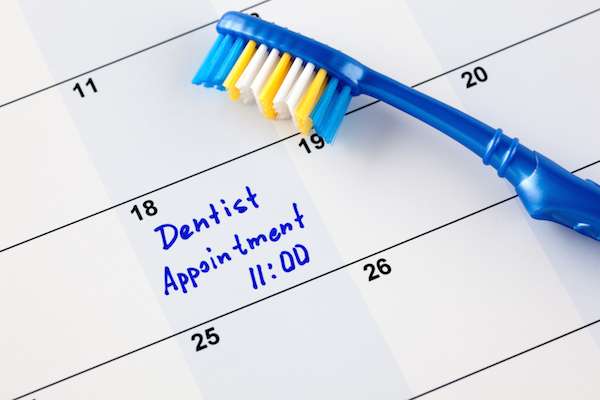 Any dental work that is done to repair missing or damaged teeth are types of dental restorations, which can include anything from minor fillings to full implants. How long these restorations take depends entirely on what kind of work is necessary. Some procedures can be performed in a single short appointment, while others might be a long process and require multiple appointments.
Any dental work that is done to repair missing or damaged teeth are types of dental restorations, which can include anything from minor fillings to full implants. How long these restorations take depends entirely on what kind of work is necessary. Some procedures can be performed in a single short appointment, while others might be a long process and require multiple appointments.
Lengths of procedures for dental restorations
Because there are so many different types of restorative dental work, it is helpful to know what common procedures are and how long each type of restoration can take. Here is a list of some of the most common dental restorations and what patients can expect from each one.
Fillings
The most common type of restoration, dentists use fillings to repair dental caries which have not progressed too far. Fillings can be made of tooth-colored composite, silver amalgam or gold. During a checkup, dentists may spot a cavity on an X-ray or a physical examination of the tooth. A follow-up appointment to fill the cavity can then be scheduled for a later date. A dentist may fill multiple cavities during this follow-up appointment. It is generally a fairly quick process that needs only the one appointment to complete.
Crowns
A step up from fillings, crowns are essentially tooth-shaped covers or caps that are placed over damaged teeth to restore their proper function and appearance. The dentist may need to reduce and shape the original tooth so that the crown fits properly. In many instances the placement of a crown can take several appointments. Molds or impressions of the tooth may need to be sent to a lab that will then fabricate the crown. After preparing the original tooth, the dentist may put on a temporary crown until the fabricated crown comes back from the lab, then during a later appointment the final crown can be cemented in place.
Bridges
Bridges can be used to fill gaps between teeth where one or more teeth are missing. It is important to fill such gaps so that the remaining teeth do not start to shift. It is also better for the oral health of the remaining teeth. Crowns on either side of the bridge can hold it in place. A bridge procedure often requires two separate appointments, one to shape the anchor teeth and one to install the bridge.
Implants
Implants are one of the more time and labor-intensive procedures from beginning to end. A hole must be drilled into the jaw bone and a metal post installed, which will become an anchor for a prosthetic tooth or teeth. While this part of the procedure may not take long, getting the implant ready to attach a prosthetic piece can take months. The dentist must ensure that the bone has grown around and fused to the post. In rare occasions the bone may reject the implant so another material needs to be used.
Check out what others are saying about our dental services on Yelp: Dental Restorations in Weymouth, MA.
Conclusion
Dental restorations can take anywhere from an hour or two to months until the process is finished. The type of restoration and the number of issues that need to be resolved all play a role in how long the restorations take.
Request an appointment or call Dr. Frederick F. Nafash and Associates at 617-822-3400 for an appointment in our Weymouth office.
Related Posts
We are committed to providing quality service to residents located In the Weymouth, MA area. Our website has additional information about the following topics: Dentist, Cosmetic Dentist, General Dentist, Emergency Dentist, Family Dentist, Dental Implants, All-on-4 Dental Implants, CEREC Dentist, Dental Crowns and Periodontist.
A damaged dental crown can cause discomfort and disrupt the functionality of your teeth. Whether the crown has cracked, chipped, or fallen out, addressing the issue promptly is crucial for preserving your oral health. Dental crowns are designed to protect and restore damaged teeth, but taking the right steps can prevent further complications when they…
You have probably heard about dental implants and how this tooth-replacement option can restore your smile. Dentures are another treatment that patients with multiple missing teeth can benefit from. Your dentist can also combine the two by providing implant-supported dentures. There are reasons that this method offers advantages over traditional dentures.Both types of dentures come…
